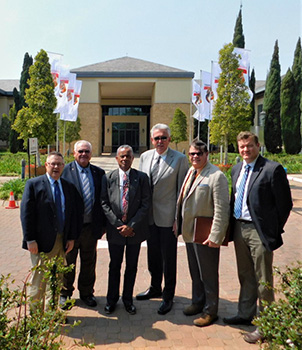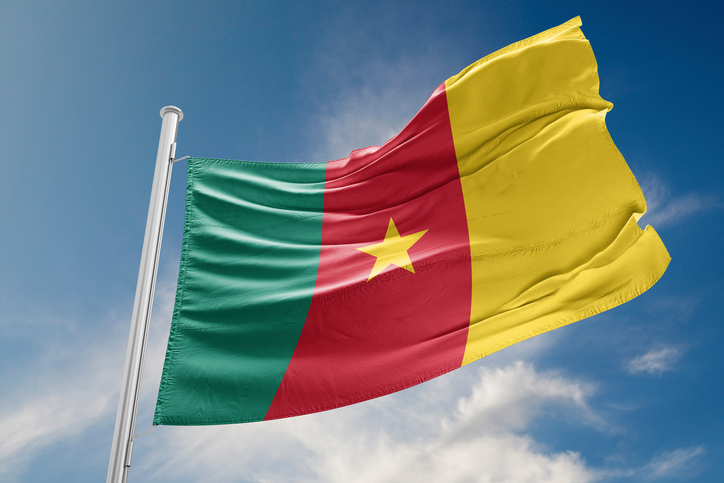In 2018/19, U.S. Wheat Associates (USW) earned back a portion of its business in Nigeria through activities supported by funding from USDA/Foreign Agricultural Service Foreign Market Development (FMD) program and Market Access Program (MAP).
In September 2018, U.S. wheat farmers from Kansas, Oklahoma and Arizona traveled to Lagos, Nigeria, as part of a USW Board Team funded in part through FMD. Meetings were held at several flour mills where most managers said the shift will likely continue even though they know by experience that HRW offers consistent performance and usually higher quality milling characteristics than Black Sea wheat.
Taking advantage of the personal visits and with support from USW local and regional representatives at the meetings, the farmers review the advantages of HRW and other U.S. classes and how USW is supporting the industry’s efforts to continue improving HRW milling, baking and processing characteristics. News the farmers shared about exportable supplies of U.S. hard white (HW) wheat grown in Kansas, Colorado and Nebraska sparked much interest from the flour millers.
The benefits of HW include higher flour extraction, whiter color flour and low moisture levels that would help the millers overcome a significant part of the cost differential with Black Sea wheat. Hard white wheat at the time was about the same price as HRW, and the farmers encouraged the millers to consider bidding for some HW. The Team was quick to point out that scaling up HW production to the point at which exportable supplies are consistently available will take a long, sustained effort, but the industry is encouraged by interest in HW and continues to work toward improving milling and processing quality in new varieties.
Flour Mills of Nigeria (FMN), which owns an export elevator in the U.S. Gulf, immediately took advantage of the information shared during the Board Team to purchase U.S. HW. Eventually, FMN imported more than 137,000 MT of HW in marketing year 2018/19. Several other Nigerian mills based on trade servicing activities funded by MAP and more competitive pricing also significantly increased HRW imports by about 311,000 MT in 2018/19 to 1.1 million metric tons. That represents an additional return to farmers in Oklahoma, Kansas, Colorado, Nebraska and Texas.
USW continues to use MAP funding to maintain full time technical marketing consultants to represent U.S. wheat farmers and USW in Nigeria. The consultants recommend market development programs for Nigeria, gather marketing statistics and assist in market development activities and logistical support when necessary.



